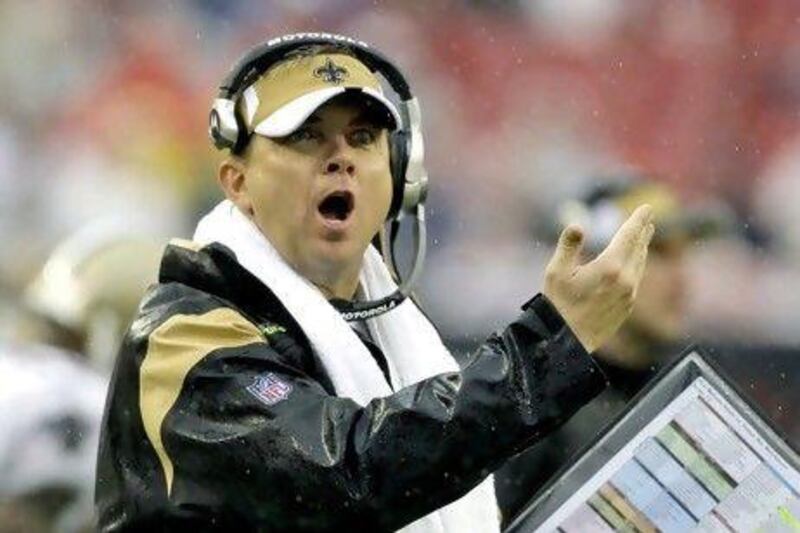The clampdown on the New Orleans Saints for their pay-to-hurt programme was a watershed moment in pro football.
Long-simmering concerns over concussions and post-retirement health of players boiled over, resulting in unprecedented penalties being slapped on the Saints.
Ken Herock has been involved with the league for nearly a half-century as a player, scout and team executive. He believes that the so-called "Bountygate scandal", along with studies that suggest repeated blows to the helmeted head can lead to dementia, will impact football for better and worse - but mostly better.
He will not go so far as to anticipate a metamorphosis of the sport that alienates traditionalists and bears limited resemblance to the current form.
To him, the downside relates to the dramatic reduction of training camp and in-season practices, especially with players wearing pads. For decades, they would endure two-a-days, mostly while wearing full gear, for two months before the regular season. From then on, the typical week would include three sessions with hitting.
The league, in conjunction with the players association, now permits only 15 practices before the first exhibition game and no more than one summer practice per day in pads.
Once the season commences, practices with contact are capped at two weekly, dropping to one during the final five weeks. Several teams have voluntarily cut back to one practice per week in pads between the games that count.
Herock, who operates a service that prepares prospects for the draft, worries that compressed practice time, particularly the type that approximates game action, could lead to a deterioration in quality of play.
"I don't know how you can get your timing down, your hitting down," he said. "How will those guys improve their tackling and blocking? I don't see how you develop players as quickly as you can technique-wise."
Yet, he noted, the casual fan will not notice much difference.
What they will see is a gradual disappearance over five to 10 years of tacklers leading with the helmet. The method, endorsed by coaches when there was little awareness of the dangers, is no longer taught, but old habits die hard with veterans.
As they retire and are replaced by the next generation, headfirst tackles will go the way of run-first offences, Herock said.
He dismissed a complaint voiced by some players that they tend to ease up on hits for fear of being penalised or fined.
Tweaking of rules and emphasis with referees will increasingly protect quarterbacks from late or vicious hits, much to the chagrin of some defenders, Herock said.
"The quarterback is the key to winning," he said. "We've got to save the quarterback first."
With the league office preaching player safety, officials will err on the side of caution and call more penalties on borderline hits, Herock said.
At the same time, Herock imagines that play-calling will continue to lean toward the pass, though he does not see the rushing game fading into obscurity. As defences roll out nouveau alignments, such as only one down lineman while the others move around before the snap, running backs will hear their numbers called.
Slightly injured players, he predicted, will be held out longer than is customary as a precaution. "In the past, the star got knocked out and was back in the same game," he said.
Off the field, Herock said, coaches will carefully measure their words during speeches to players in light of inflammatory talks by Gregg Williams, the former Saints defensive coordinator, that were recorded and led to his suspension.
Overall, Herock concluded, "I like what the league is doing, It's not as violent a game as it was."
What about critics who fear players will lose their toughness? "If you are lining up in the National Football League," he said, "you are tough enough."
Follow us
[ @SprtNationalUAE ]





